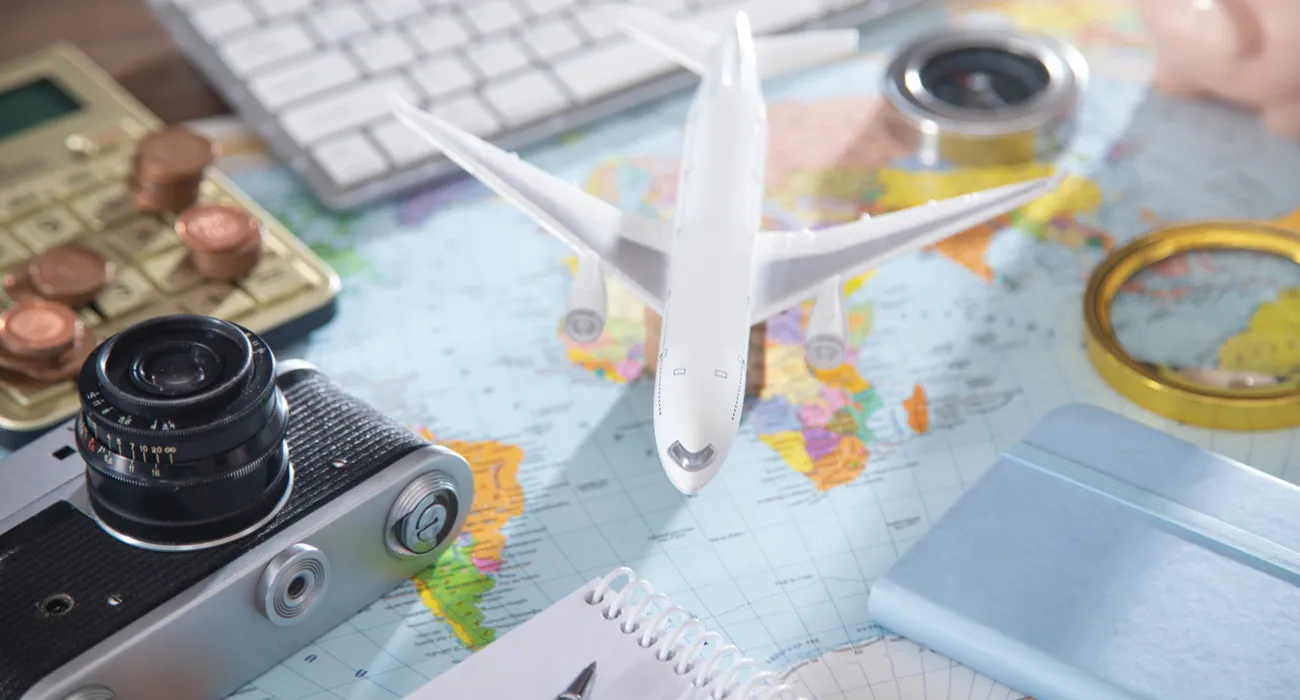Preparing for international travel during the summer involves several key steps to ensure a smooth and enjoyable trip. There are several ways to save money as you jet set!
Make Sure Your Passport is Up to Date
- If you need to apply for a new passport or renewal, keep in mind that routine processing times are 6-8 weeks.
- If you already have a valid passport when booking your travel, be sure that your passport does not expire for at least 6 months beyond your planned return date.
- It costs an extra $60-$200+ to expedite your passport, save money by planning ahead before you travel.
- You don't want to get stuck in another country because your passport has expired -apart from the inconvenience and your loss of time, you'd also be responsible for additional hotel, food, and travel change costs.
Take Necessary Health Precautions
- Some countries require certain vaccines and health precautions for tourists.
- Research requirements and schedule an appointment with your healthcare provider to get the necessary vaccines or medications.
- These costs could be covered by your health insurance provider versus paying out of pocket for the expenses, check with your insurer for details.
Use the Right Credit Cards
- Make sure your credit cards do NOT charge foreign transaction fees - these fees are in addition to the foreign exchange rate and increase the cost of your purchases without adding any value.
- Ideally, use a card that allows for travel perks such as free checked bags, lost baggage insurance, or complimentary lounge access.
- Visa and Mastercard are the most widely accepted credit card issuers worldwide. American Express and Discover have a global footprint, but are accepted at fewer merchants. Check with your card issuer to be sure to confirm you can use it on your trip.
Avoid Withdrawing Too Much International Currency
- Try to avoid using your debit card unless you are going to the ATM, as fraud protection is more limited compared to credit cards. If you need cash, go to an ATM in the country you are visiting and withdraw cash there.
- Only take out what you need for tips or shopping at local markets.
- Research your bank's ATM network which will allow you to withdraw money for lower fees instead of going to currency exchange kiosks. Currency exchange kiosks charge can charge 5% - 10%+ in fees, versus your bank's 1% - 3% exchange fees.
Try to Avoid Overpacking
- Many airlines charge extra fees for additional and overweight baggage. You could save $50 - $100 per bag by packing smart!
- For clothing - think in "items" not "outfits." If your pieces can mix and match, almost each item can be worn more than once without it seeming like you have the same outfit on. Use travel-sized toiletries.
- Consider what travel adapters you might need for charging electronics.
- Leave room for souvenirs and anything you may bring back from shopping during your travels.
Download Essential Apps
- Google Translate
- Google Maps - you can download Offline maps of the city/country you are traveling to. Most phones have GPS enabled, so you don't need WIFI to use your map offline.
- Local Rideshare services - most countries have Uber, Lyft, Bolt, or similar services.
Organize Your Travel Documents
- Make digital copies of your passports, visas, and even credit cards you will be using.
- Print and share your itinerary with your trusted contacts.
- Update emergency contacts.
- Know where the embassy of your country of residence is located at within the country you're visiting.
This list is not the end-all be-all
but outlines key steps you should take when preparing for international travel.
By implementing these strategies, you could save hundreds to thousands of
dollars over time and ensure that your trips are both memorable and
cost-effective. For personalized advice on how to save money as you travel, contact your Private CFO®
today!





